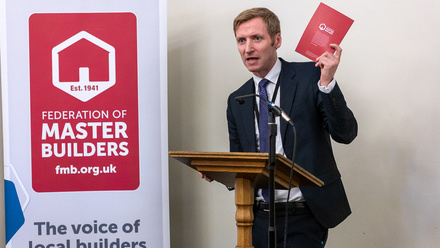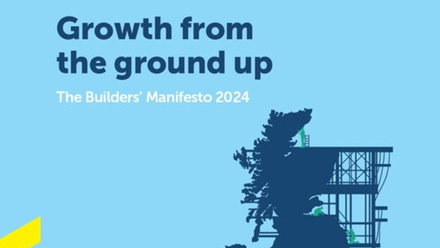
If the Government’s target to cut greenhouse gas emissions to almost zero by 2050 is to be met, there needs to be a mass retrofit programme of the UK’s existing housing stock. Our homes account for a large percentage of our carbon emissions but the vast majority of the properties that we will reside in in 30 years’ time are already built.
Russell Smith is a chartered engineer by trade and his interest in sustainability began when he was renovating his own home. “I started to learn a lot about sustainability and the impact of our homes and realised that the biggest thing that we need to do if we are to have any chance of stopping man-made climate change is the renovation of our entire housing stock,” he said. “That was 15 years ago, and you could argue that very little has happened since in terms of policies and progress, so the fight continues.”
His experiences prompted him to set up Parity Projects, which uses data science, software and analysis to help its clients to effectively deliver energy efficiency.
“Parity is all about providing information and support to people that are making key decisions about retrofit and it is about being impartial too,” he explained.
It works with local authorities and landlords to develop cost-effective retrofit programmes that meet their cost, comfort and carbon goals. In addition, its software enables householders to identify the costs and benefits of upgrading their home, based on existing house data.
Russell believes that retrofitting the UK’s housing stock would provide an opportunity for economic growth and creating jobs. As well as the obvious environmental benefits, it would also improve people’s health.
“It seems to me to be something that hits so many different buttons,” he said. “When we are in a post-COVID-19 world and the Government is looking for shovel-ready projects to get the economy moving again, this has to be top of the list, especially when we are encouraging people to work locally.”
But as it stands, as well as having a skills gap, the construction sector workforce simply isn’t big enough for the challenge.
“We have got a big opportunity, but the problem is around how many people we need to train up to get the industry to hit even the Government’s own target. We need 270,000 additional tradespeople in the industry to make it work, and we need them now,” said Russell.
He believes that the industry needs to “stop thinking in silos” if it is to truly make the most of the available opportunities. Alongside Parity, he runs Retrofit Works, a not-for-profit co-operative of small and medium-sized businesses (SMEs) carrying out retrofit programmes, which he founded in 2003.
As well as supporting contractors it employs retrofit coordinators to project manage schemes and oversee the design process.
“They are not there to be clerks of works, they are there to support the contractors and designers, as even people working in the industry right now need extra knowledge and understanding of what the future of housing in the UK really needs to be. As well as the 270,000 people coming into it we also need 35,000 retrofit coordinators, according to our calculations, so it is a massive undertaking,” explained Russell.
“It isn’t going to be the big companies that drive this because they have been proven incapable of doing this. It is smaller, locally based expert firms that will really drive this sector and there are enormous opportunities to do that.”
National strategy
We are calling for a National Retrofit Strategy to help boost economic recovery, and for small and medium-sized (SME) builders to be placed at the heart of the plan.
“Operating in the ‘new normal’ means that builders are facing different challenges in their day-to- day work. Builders are adapting. However, the Government must step in to ensure that activity does not grind to a halt. We must learn lessons from 2008 when 481,000 builders lost their jobs in construction as activity slowed. The Government must target support for the SME businesses to boost regional growth. The most effective and impactful way to do this is through a national retrofit strategy. Upgrading our homes will improve their quality, reduce carbon emissions and promote innovation,” said FMB Chief Executive Brian Berry.
A national retrofit strategy would involve the Government investing in energy efficiency repair and improvements to the UK’s poorly insulated homes. The FMB chairs the Construction Leadership Council’s Repair Maintenance and Improvement (RMI) Working Group, which will be putting forward proposals to the Government to help boost the RMI market and support the economic recovery.
“Immediate short-term solutions discussed included a cut in the rate of VAT and changes to the planning system to make it easier to create homes above shops,” explained Brian. “The Working Group has also discussed the need for a longer-term strategy to support the RMI market with the introduction of a national retrofit plan, which would create many more new jobs and support the Government’s legal obligation to cut carbon emissions to zero by 2050.”
We continue to meet regularly with the Housing Minister Chris Pincher to discuss the concerns of members and the need for a more diverse housing market.






